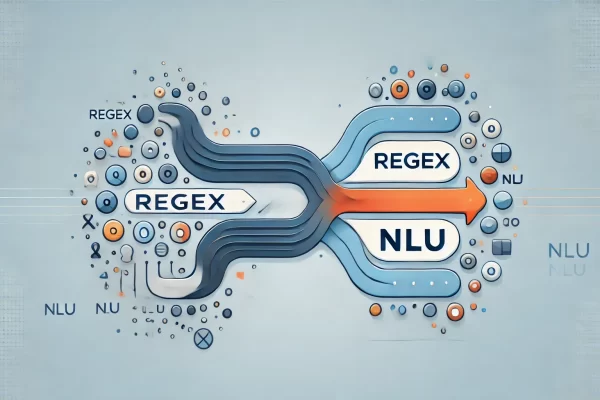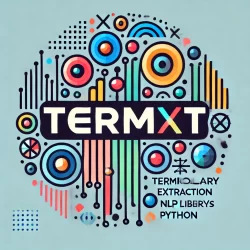A Paradigm Shift in AI Communication
As we stand at the intersection of artificial intelligence (AI) and localization, the role of linguists and linguistic engineers is evolving from traditional text translation to strategic prompt engineering—a critical yet often underappreciated discipline that ensures AI understands and generates language that is not only correct but contextually and culturally nuanced. This emerging field represents more than a technical challenge; it embodies a significant shift in how we approach AI communications, emphasizing the need for linguistic finesse in digital interactions.
The Role of Linguists in AI Development
Linguists and linguistic engineers are the unsung heroes in the AI development process. Their expertise in the nuances of language plays a pivotal role in designing AI systems that can interact effectively across various cultures and languages. In the context of localization, their work is crucial to creating AI that is not just functionally competent but also culturally resonant and engaging.
Elevating Semantic Precision and Contextual Relevance
Consider the transformation of a basic AI prompt into a culturally attuned interaction:
# Initial Prompt:
"Translate 'home' into Spanish."
# Basic AI Response:
"Casa"
Markdown
A linguist intervenes to enhance contextual understanding:
# Refined Prompt:
"Translate 'home' into Spanish,
emphasizing a sense of warmth and family belonging
rather than just a physical dwelling."
# Culturally Enhanced AI Response:
"Hogar"
Markdown
This subtle yet profound refinement showcases the linguist’s role in embedding cultural intelligence into AI responses, ensuring that translations resonate emotionally and contextually with the target audience.
Advanced Data Retrieval and Analysis
Prompt engineering extends into complex data analysis, where precision in language can determine the effectiveness of AI in extracting and interpreting data.
# Basic Prompt:
"Summarize customer feedback from the last quarter."
# Unrefined AI Response:
"Here is all customer feedback from the last quarter."Markdown
A linguistic engineer refines the prompt to achieve targeted, actionable insights:
# Advanced Refined Prompt:
"Analyze customer feedback from the last quarter
to identify top three concerns mentioned by users,
focusing on service-related issues."
# Strategically Refined AI Response:
"The top three service-related concerns are delayed
response times, lack of personalized support, and
navigation difficulties on our mobile platform.
Recommended actions include optimizing response protocols,
introducing user personalization features, and
redesigning the mobile navigation experience."Markdown
This example illustrates how linguists can guide AI to not only gather data but also perform nuanced analysis that is directly actionable, enhancing business strategies and customer satisfaction.
Linguists’ Tasks in Shaping AI’s Future
As AI continues to advance, linguists and linguistic engineers are tasked with increasingly complex responsibilities:
- Training AI Models: Develop training modules that teach AI systems to understand and use language that reflects cultural and contextual accuracy.
- Prompt Optimization: Continuously refine and test AI prompts to ensure they produce desired outcomes with high relevance and specificity.
- Bias Detection and Mitigation: Actively scan AI outputs for biases and implement corrective measures to promote fairness and inclusivity.
- Ethical Framework Development: Collaborate in crafting guidelines that ensure AI interactions adhere to ethical standards, respecting privacy and cultural diversity.
- Interdisciplinary Collaboration: Work alongside developers, data scientists, and cultural experts to integrate comprehensive linguistic intelligence into AI systems.
- User Experience Design: Influence the design of user interfaces and the language used in interactions to enhance clarity and user engagement.
Navigating the New AI Paradigm in Localization
In the current landscape, AI and NLP are increasingly reliant on the nuanced skills of linguists and linguistic engineers to navigate new technological paradigms. As the demand for more sophisticated, culturally aware AI systems grows, many end-clients and large companies are still grappling with how best to leverage linguistic expertise. The gap often lies in the underutilization of linguistic skills, leading to AI applications that may seem technologically advanced but lack the cultural and contextual adaptability required for global success.
The future of AI in localization must move beyond traditional views of linguistic tasks as mere translation or basic data processing. Instead, we must see linguists and linguistic engineers as crucial strategists in AI development, essential for ensuring that AI technologies not only function in multiple languages but do so in a way that is culturally coherent and contextually meaningful across global markets.
Redefining the Future of AI with Linguistic Expertise
Linguists do not just fine-tune AI; they redefine how it interacts with the world. For AI to truly succeed on a global stage, it must not only understand languages but also the cultural contexts in which it operates. Thus, the future of AI in localization is linguistically informed, culturally attuned, and ethically guided, making linguists and linguistic engineers key players in shaping this future. This partnership doesn’t just build better technology—it crafts a future where technology understands and interacts with us as well as we understand each other. As we move forward, it is essential that the strategic involvement of linguists in AI development is not only recognized but also integrated into the core of how AI applications are designed and deployed.
If you are interested in Prompt Engineering, keep reading these articles:
- AI Demystified: What is Prompt Engineering? – A Stanford University Research Article
- Natural Language Processing with Python by Steven Bird, Ewan Klein, and Edward Loper
- Prompt engineering concepts – Amazon
- Prompt engineering – OpenAI
- Prompt Engineering Guide – Published in Towards Data Science
my latest publications!Read more in





![[post-views]](https://www.veriloquium.com/wp-content/uploads/2025/02/DALL·E-2025-02-26-11.58.33-A-modern-minimalistic-digital-illustration-for-Real-Quality-Management-RQM-in-localization-and-translation-QA-using-a-clean-and-subtle-color-schem-600x400.webp)


![[post-views]](https://www.veriloquium.com/wp-content/uploads/2025/02/DALL·E-2025-02-26-11.58.33-A-modern-minimalistic-digital-illustration-for-Real-Quality-Management-RQM-in-localization-and-translation-QA-using-a-clean-and-subtle-color-schem-300x200.webp)

